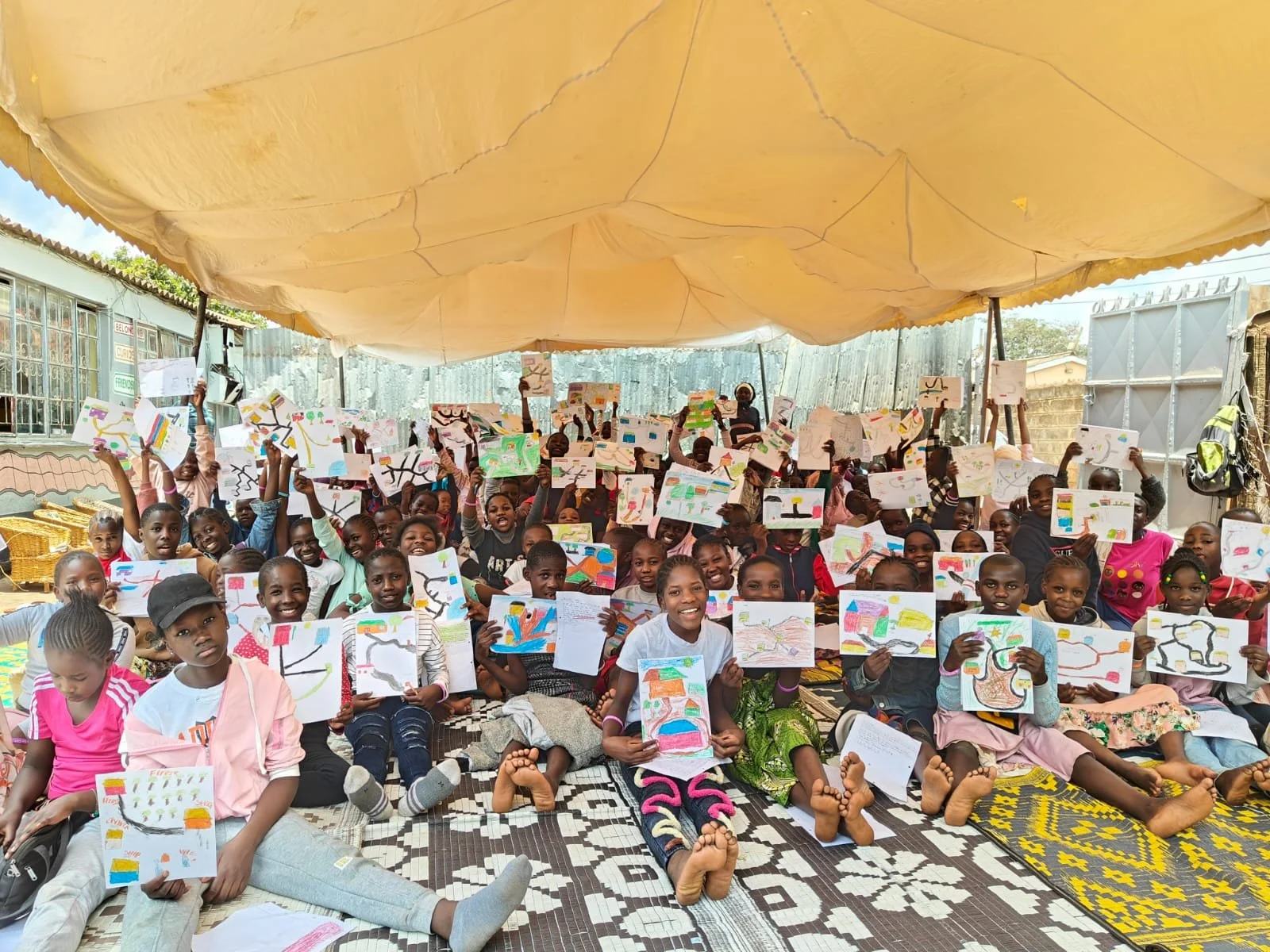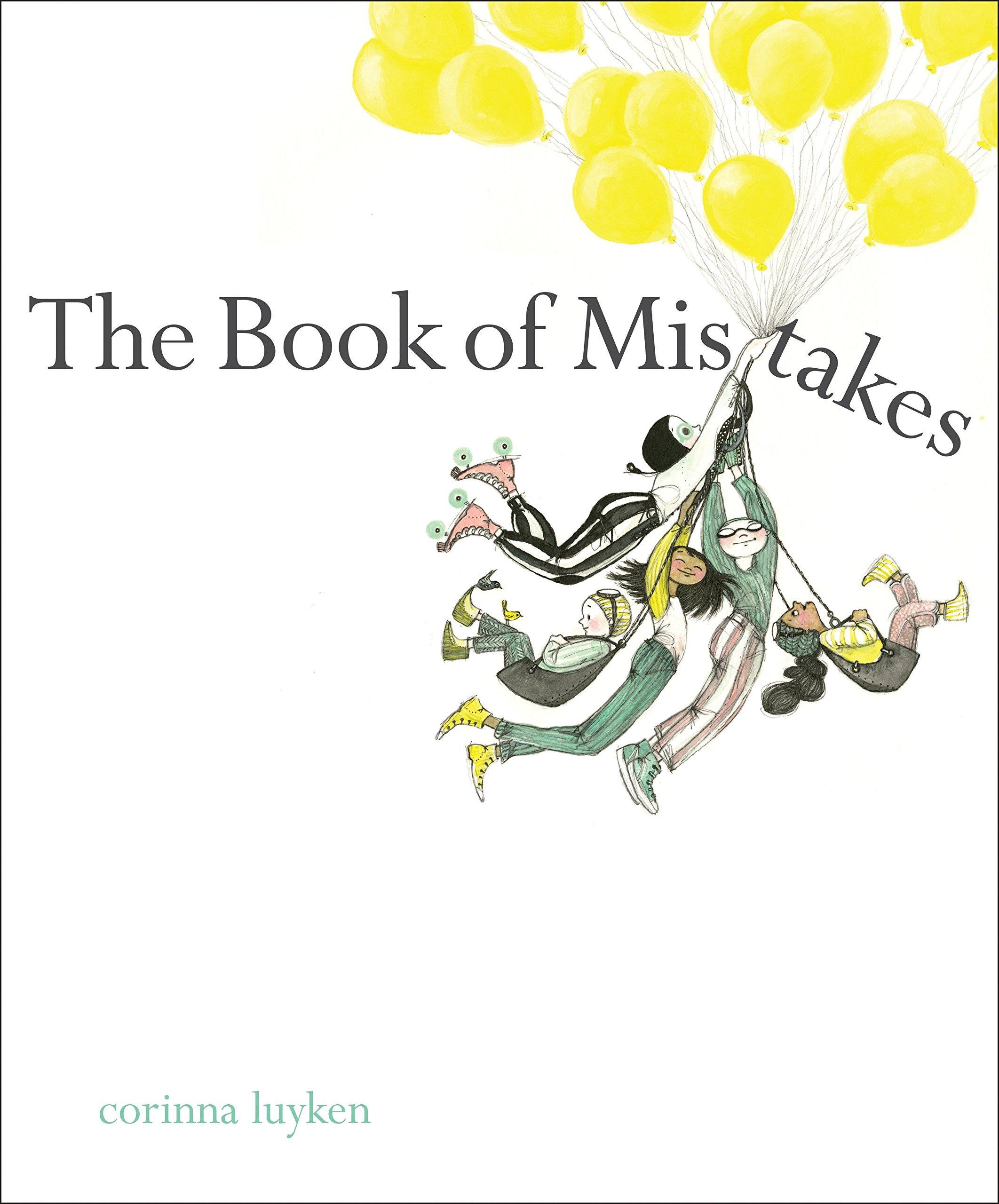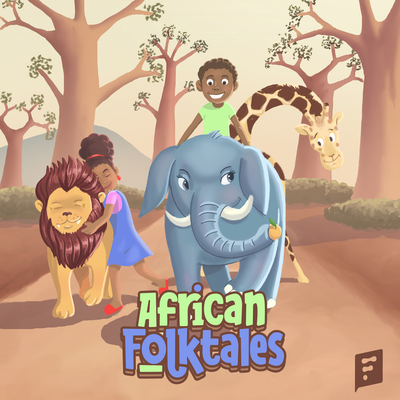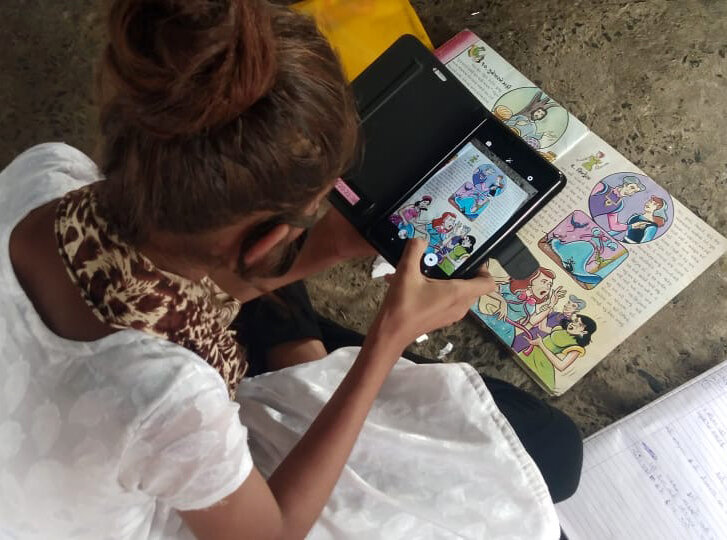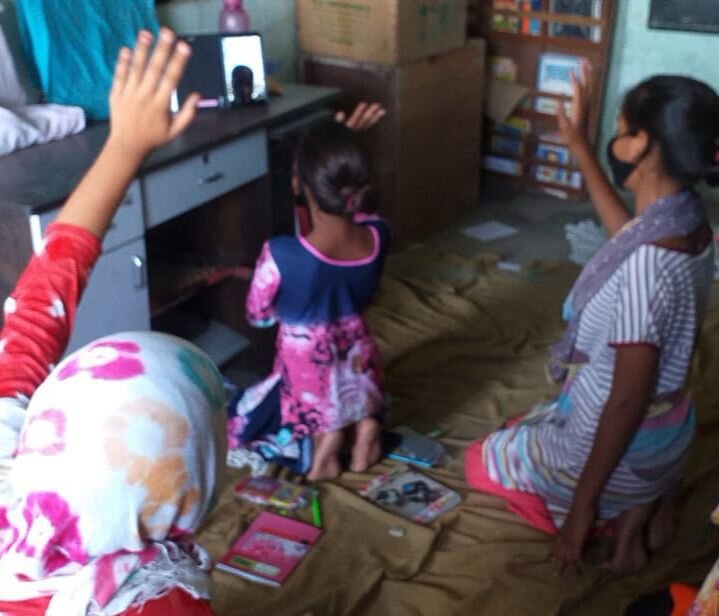Guest post by Jenn Curtis.
My house is littered in white printer paper, and it’s been like that for years. Clear Ziploc baggies made colorful with ragtag hodgepodges of crayons, pens, markers, and colored pencils are tucked away in every single room. Both my girls love the creative process, whether it involves writing stories about The Friendship Club (modeled after the Babysitters Club) or coloring for hours.
Several years ago, when my oldest daughter was 4, I started to notice just how difficult it was for her to make a small mistake, particularly when she was writing or drawing. I feared that, in time, her mistake aversion might inconveniently spill out into the rest of her life. A slight shift of the hand, revealing a misshapen “o” or lopsided eyes, led to a meltdown—or at the least to an insurmountable obstacle that made crumpled up printer paper overtake our trash cans. Frustrated with my own inability to help her see the beauty in her mistakes, I turned to books. I still remember the day The Book of Mistakes by Corinna Luyken arrived on our front doorstep.
The Book of Mistakes is a beautifully illustrated book about an artist who makes a mistake while drawing. That mistake leads to others—splotches, incongruous limbs, an unfortunate “frog-cat-cow thing”—which lead to others, which ultimately reveal a gorgeously unique piece of artwork that never would have existed were it not for the initial mistake. Mistakes are beautiful, it taught. The creative process is exciting and mysterious, it said. The first time I read it to my daughter, she listened intently. She leaned into me. But she didn’t say much. To be honest, I wasn’t sure if she was absorbing the point, but I hoped that she’d grasp the lesson over time.
Every few weeks, for quite some time, she’d go back to that book. She fixated on the art, but she remained quiet even as we discussed what the book taught us. Over time, though, as she became more interested in reading independently, The Book of Mistakes was tucked away on the bookshelf, replaced by chapter books with zany plotlines and curiosity-piquing mysteries.
Last week, my daughter, now 7, set to work on a picture for her teacher. Armed with a fine black pen (eerily similar to that used in The Book of Mistakes), she started in on creating her piece—a simple depiction of her and her teacher. Within minutes, she realized that her legs in the picture were not nearly long enough to rest on the same plane as the legs she’d drawn for her teacher… but they were supposed to be standing right next to one another.
With a level of calm that I wasn’t expecting, her eyes turned upward. Rather than crumpling the paper with an exasperated snarl, she softly said, “Oops. I guess I’ll have to draw in some floor tiles to fix it.” She incorporated her classroom’s blue and yellow tiles under their feet, an unplanned addition. Several minutes later, her attempt to draw an object (I’m not sure what) went awry. She paused to think, then morphed the object gone wrong into a stack of books, then housed the floating stack of books on a sturdy bookshelf. An error while drawing her fingers led to the pair sharing ice cream cones together. Satisfied, she colored in her creation, and before placing it in an envelope to gift to her teacher the next morning, she took me on a tour through her creative process. When she was done? “It’s just like The Book of Mistakes, mom.”
Jenn Curtis, MSW, is an educational consultant, author, and speaker. She is the co-author of The Parent Compass: Navigating Your Teen’s Wellness and Academic Journey in Today’s Competitive World. As owner of FutureWise Consulting, a college counseling company in Orange County, California, she is most passionate about empowering students to find their voice and their purpose. Jenn also co-hosts The Parent Compass x Smart Social Podcast, where she explores parenting amidst a competitive academic environment. On it, she chats with bestselling authors, parenting experts, and education thought leaders. Jenn lives in San Clemente, California with her husband and two daughters.



